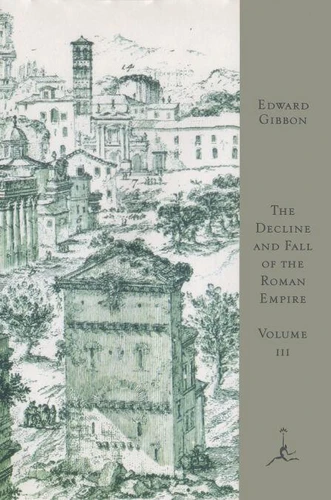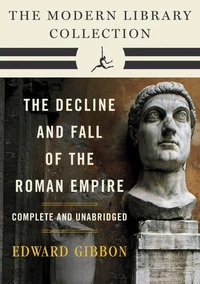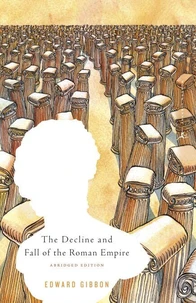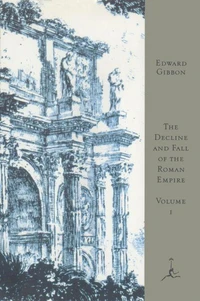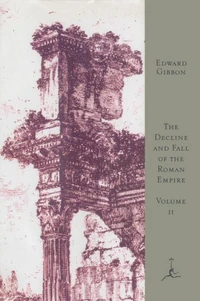The Decline and Fall of the Roman Empire, Volume III. A.D. 1185 to the Fall of Constantinople in 1453
Par : ,Formats :
Disponible dans votre compte client Decitre ou Furet du Nord dès validation de votre commande. Le format ePub protégé est :
- Compatible avec une lecture sur My Vivlio (smartphone, tablette, ordinateur)
- Compatible avec une lecture sur liseuses Vivlio
- Pour les liseuses autres que Vivlio, vous devez utiliser le logiciel Adobe Digital Edition. Non compatible avec la lecture sur les liseuses Kindle, Remarkable et Sony
- Non compatible avec un achat hors France métropolitaine
 , qui est-ce ?
, qui est-ce ?Notre partenaire de plateforme de lecture numérique où vous retrouverez l'ensemble de vos ebooks gratuitement
Pour en savoir plus sur nos ebooks, consultez notre aide en ligne ici
- Nombre de pages896
- FormatePub
- ISBN0-679-64148-3
- EAN9780679641483
- Date de parution23/10/2000
- Protection num.Adobe DRM
- Taille8 Mo
- Infos supplémentairesepub
- ÉditeurModern Library
Résumé
"I set out upon Gibbon's Decline and Fall of the Roman Empire [and] was immediately dominated by both the story and the style, " recalled Winston Churchill. "I devoured Gibbon. I rode triumphantly through it from end to end and enjoyed it all.... I was not even estranged by his naughty footnotes." In the two centuries since its completion, Gibbon's magnum opus--which encompasses some thirteen hundred years as it swings across Europe, North Africa, and Asia--has refused to go the way of many "classics" and grow musty on the shelves.
"Gibbon is a landmark and a signpost--a landmark of human achievement: and a signpost because the social convulsions of the Roman Empire as described by him sometimes prefigure and indicate convulsions which shake the whole world today, " wrote E. M. Forster. Never far below the surface of the magnificent narrative lies the author's wit and sweeping irony, exemplified by Gibbon's famous definition of history as "little more than the register of the crimes, follies and misfortunes of mankind." The third volume contains chapters forty-nine through seventy-one of The Decline and Fall of the Roman Empire.
"Gibbon is a landmark and a signpost--a landmark of human achievement: and a signpost because the social convulsions of the Roman Empire as described by him sometimes prefigure and indicate convulsions which shake the whole world today, " wrote E. M. Forster. Never far below the surface of the magnificent narrative lies the author's wit and sweeping irony, exemplified by Gibbon's famous definition of history as "little more than the register of the crimes, follies and misfortunes of mankind." The third volume contains chapters forty-nine through seventy-one of The Decline and Fall of the Roman Empire.
"I set out upon Gibbon's Decline and Fall of the Roman Empire [and] was immediately dominated by both the story and the style, " recalled Winston Churchill. "I devoured Gibbon. I rode triumphantly through it from end to end and enjoyed it all.... I was not even estranged by his naughty footnotes." In the two centuries since its completion, Gibbon's magnum opus--which encompasses some thirteen hundred years as it swings across Europe, North Africa, and Asia--has refused to go the way of many "classics" and grow musty on the shelves.
"Gibbon is a landmark and a signpost--a landmark of human achievement: and a signpost because the social convulsions of the Roman Empire as described by him sometimes prefigure and indicate convulsions which shake the whole world today, " wrote E. M. Forster. Never far below the surface of the magnificent narrative lies the author's wit and sweeping irony, exemplified by Gibbon's famous definition of history as "little more than the register of the crimes, follies and misfortunes of mankind." The third volume contains chapters forty-nine through seventy-one of The Decline and Fall of the Roman Empire.
"Gibbon is a landmark and a signpost--a landmark of human achievement: and a signpost because the social convulsions of the Roman Empire as described by him sometimes prefigure and indicate convulsions which shake the whole world today, " wrote E. M. Forster. Never far below the surface of the magnificent narrative lies the author's wit and sweeping irony, exemplified by Gibbon's famous definition of history as "little more than the register of the crimes, follies and misfortunes of mankind." The third volume contains chapters forty-nine through seventy-one of The Decline and Fall of the Roman Empire.

